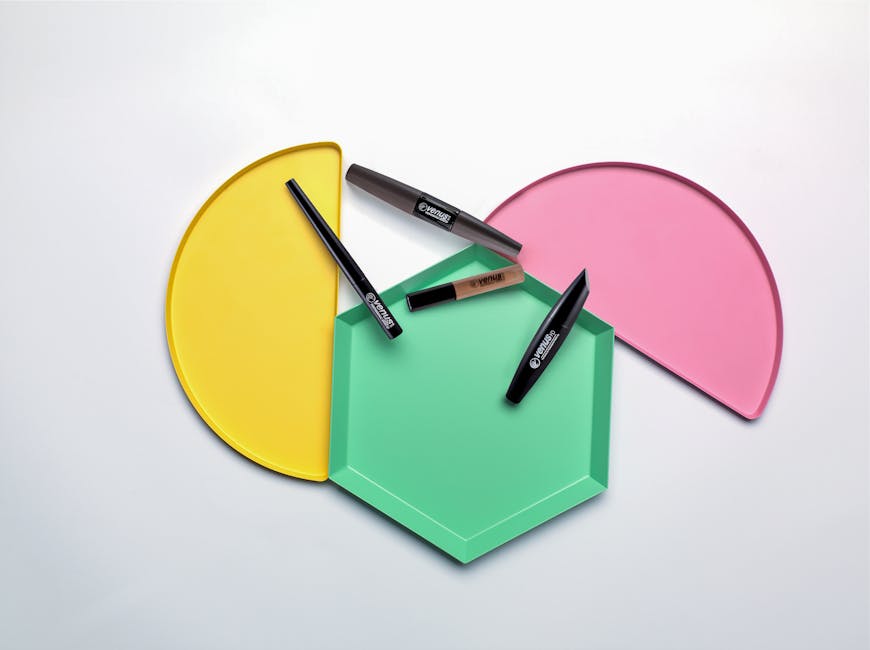The beauty industry is a dynamic force, constantly shifting and adapting to evolving societal values, technological advancements, and consumer desires. Understanding these shifts is crucial for brands to stay ahead of the curve and for consumers to make informed choices. This exploration delves into the key trends shaping the current beauty landscape, highlighting the factors driving these evolutions.
A Focus on Inclusivity and Representation:
A significant driver of recent beauty trends is the demand for inclusivity and representation. Consumers increasingly seek products that cater to diverse skin tones, ethnicities, and body types. This translates into a greater emphasis on shade ranges, formulations designed for various skin concerns, and brands actively featuring diverse models and influencers in their marketing campaigns. The days of one-size-fits-all beauty standards are fading, replaced by a celebration of individuality and authenticity. Brands are recognizing the importance of not just offering products but also embodying a message of inclusivity.
The Rise of Sustainable Practices:
Ethical considerations are impacting every facet of modern life, and beauty is no exception. Consumers are demanding greater transparency and accountability from beauty brands regarding their environmental impact. This manifests in a heightened interest in sustainable practices, including the use of ethically sourced ingredients, eco-friendly packaging, and reduced waste throughout the supply chain. From biodegradable packaging options to cruelty-free formulations, a conscious consumer base is driving the demand for more responsible and sustainable beauty choices. This emphasis extends beyond the product itself, encompassing a broader consideration of the entire production cycle, from raw materials to disposal.
The Fusion of Technology and Beauty:
Technological innovation is rapidly reshaping the beauty industry, enabling personalized experiences and enhanced product efficacy. Smart mirrors, AI-powered skincare analysis tools, and personalized makeup recommendations are blurring the lines between the physical and digital beauty realms. This convergence is allowing for more tailored beauty regimens, empowering consumers to take an active role in their self-care journey. The development of virtual try-on tools and augmented reality applications further demonstrate this trend, offering an immersive and interactive beauty experience that caters to individual preferences.
The Empowerment of Natural Ingredients:
While technological advancements are prevalent, a concurrent trend emphasizes natural and organic ingredients. Consumers are increasingly drawn to products that use plant-derived extracts, essential oils, and other natural sources. This resonates with the desire for healthier alternatives and a renewed appreciation for nature’s restorative powers. This interest in natural ingredients isn’t just a trend; it reflects a shift towards holistic wellness and a growing recognition of the potential benefits of plant-based solutions. This trend is further fueled by a rising awareness of the potential risks associated with synthetic ingredients.
Skincare’s Continued Reign:
The rise of the skincare routine is no longer a fleeting phase. It’s solidified as a fundamental pillar of self-care, extending beyond a mere step in a beauty regimen to a personal journey of self-discovery. This trend emphasizes preventative care, leading to products that focus on long-term skin health and visible improvements. Formulations targeting specific skin concerns, such as anti-aging, hydration, or acne treatment, are in high demand, reflecting a proactive approach to maintaining and improving one’s skin. This dedication to skincare has paved the way for a greater focus on personalized treatments and customized routines tailored to individual needs.
The Impact of Social Media and Influencer Culture:
Social media platforms have become powerful catalysts in shaping beauty trends. Influencers, with their dedicated followings, play a pivotal role in showcasing new products and regimens, often driving immediate consumer interest. This direct interaction between influencers and audiences leads to faster adoption of trends and creates an environment where opinions and reviews are crucial in product decisions. The beauty industry is increasingly reliant on social media marketing strategies, leveraging its power to connect directly with potential customers.
The Growing Importance of Mental Wellness:
The current beauty landscape is increasingly recognizing the inextricable link between mental and physical well-being. This leads to a rising demand for products and practices that contribute to overall self-care, emphasizing relaxation, stress reduction, and inner peace. Brands are incorporating elements of mindfulness and holistic practices into their messaging and product development, acknowledging the importance of mental well-being in achieving a balanced and authentic beauty experience.
A Diverse and Inclusive Future:
These trends indicate a shift towards a more diverse, inclusive, and conscious approach to beauty. Brands that embrace these values will likely gain greater consumer loyalty. As technology and consumer preferences evolve, the beauty industry will undoubtedly encounter new trends and challenges, reinforcing the importance of adaptability and a commitment to meeting the diverse needs of their consumers. The beauty of the future promises to be a testament to individuality, sustainability, and a holistic approach to self-care.












